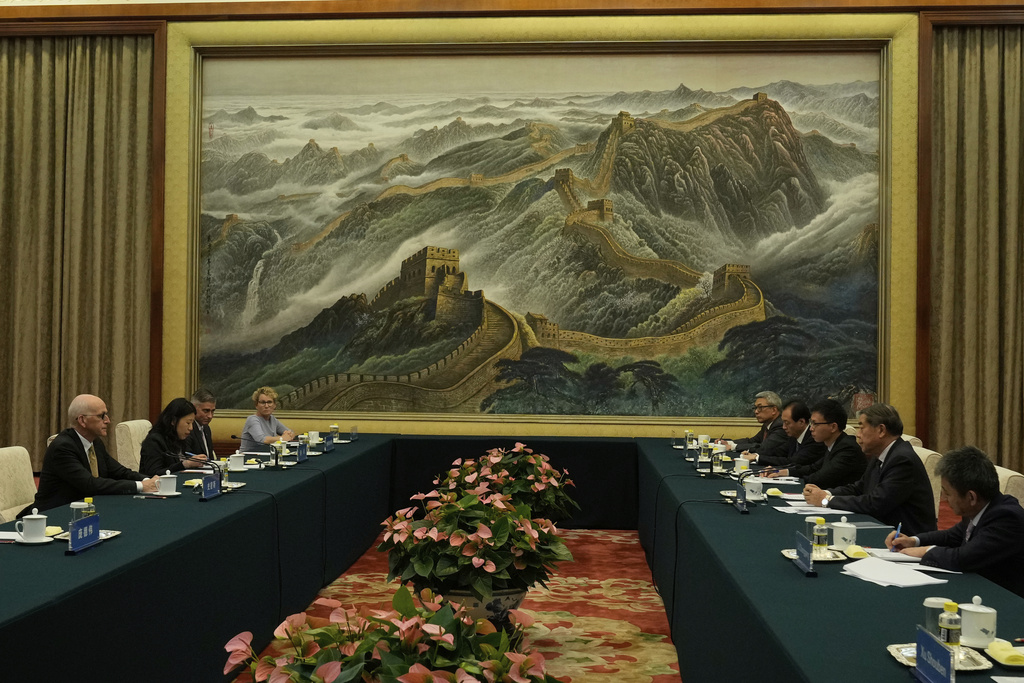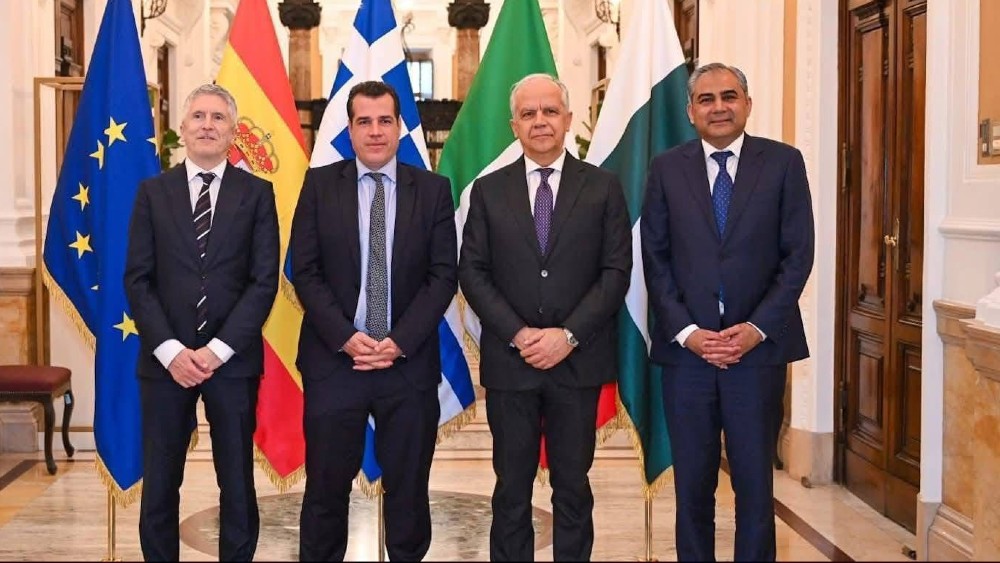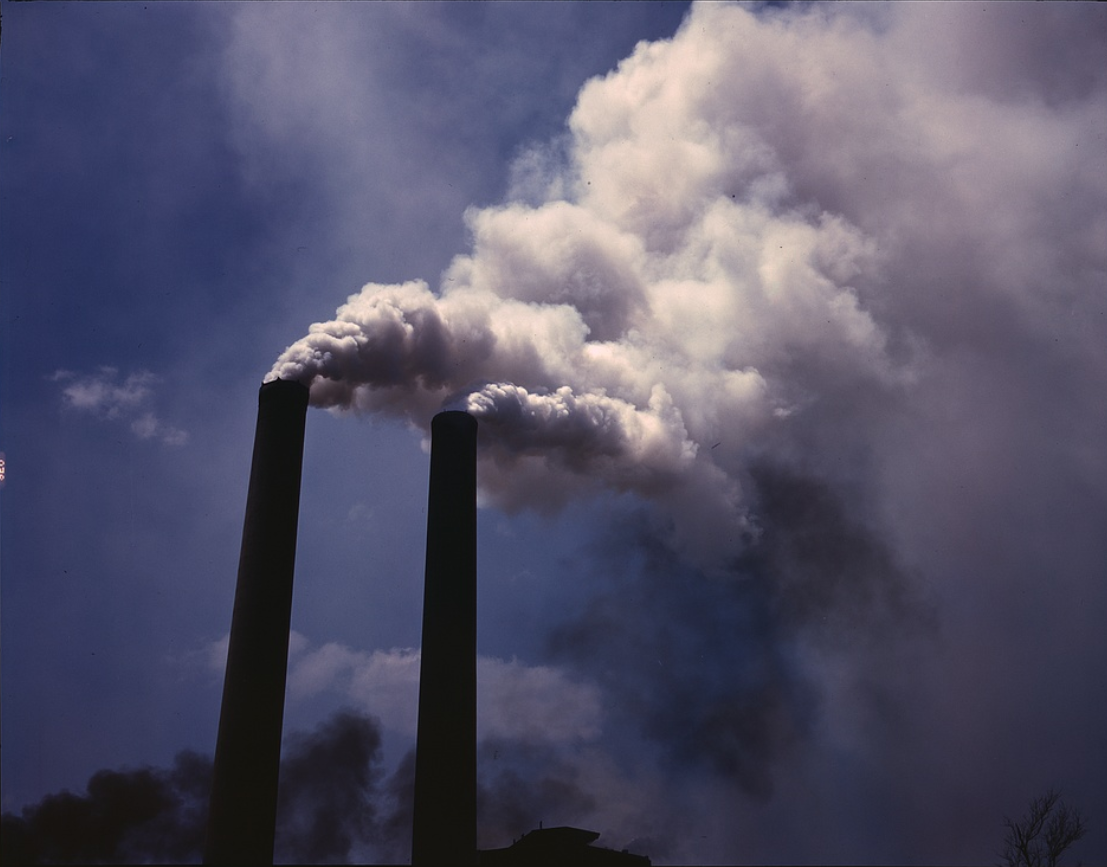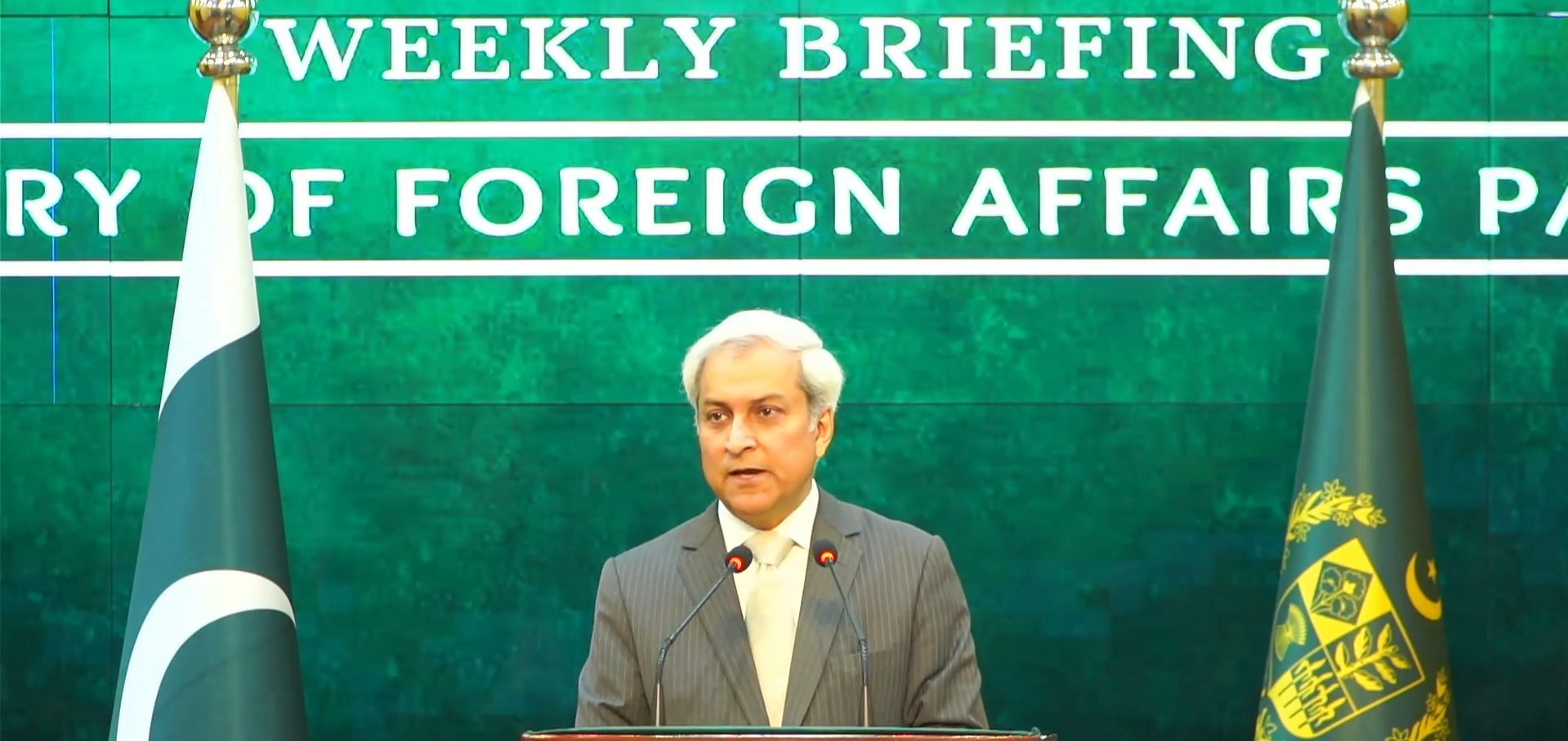BEIJING: The leader of a US congressional delegation to China warned Tuesday of the "risk of a misunderstanding" between the two countries' militaries as advances in defense technology move at breakneck speed.
Adam Smith, the most senior Democrat on Washington's Armed Services Committee, told journalists in Beijing that China needs to talk more about its military with other global powers "for basic de-confliction."
"We've seen this with our ships, our planes, their ships, their planes coming entirely too close to one another," he said at a news conference at the US Embassy.
"We need to have a better conversation about de-conflicting those things."
The four-person delegation also includes other members of the same Armed Services Committee -- Democrats Ro Khanna and Chrissy Houlahan -- as well as Republican congressman Michael Baumgartner, a member of the Foreign Affairs Committee.
The group on Monday met Chinese Defence Minister Dong Jun, with whom they talked about the importance of "working through our differences" and more candid dialogue, according to a statement from the US side.
Dong called on the visitors to "remove disruptive and restrictive factors" between them, China's Xinhua state news agency reported.
Speaking on Tuesday alongside the other lawmakers and the US Ambassador to China, David Perdue, Smith said: "AI and drone warfare and cyber and space are moving so rapidly, and innovation is happening so quickly.
"The risk of a misunderstanding of capabilities on one side or the other is great," he said, adding the two sides need to talk so they "don't stumble in any sort of conflicts."
Tariffs and TikTok
The bipartisan congressional delegation comes just days after Presidents Xi Jinping and Donald Trump spoke by telephone for the second time since the return to the White House of Trump, who has tried to keep a lid on tensions despite his once virulent criticism of China.
Trump said he would meet Xi on the sidelines of an Asia-Pacific Economic Cooperation summit in South Korea starting at the end of next month and that he would travel to China next year.
He said Xi would also visit the United States at an unspecified time and that the two leaders would speak again by telephone.
Both sides dramatically hiked tariffs against each other during a months-long dispute earlier this year, disrupting global supply chains.
Washington and Beijing then reached a deal to reduce levies, with the United States imposing 30 percent duties on imports of Chinese goods and China hitting US products with a 10 percent tariff. The deal expires in November.
Smith's group on Monday held talks with Chinese Vice Premier He Lifeng, in which they discussed the ongoing trade talks and the hot-button issues of fentanyl, critical minerals and the future of TikTok.
The White House has said a US version of TikTok would feature a homegrown model of the app's prized algorithm, potentially clearing one of the main obstacles to keeping the Chinese-owned platform online in the United States.
Asked about the TikTok issue, Smith said: "My understanding is that I don't think that has been 100 percent resolved."
The delegation will also meet China's National People's Congress Chairman Zhao Leji and Foreign Minister Wang Yi.
Boeing deal
Among other things, the US delegation also sought a commitment from China to buy more Boeing jets.
The leading global US aerospace company is in talks to sell as many as 500 jets to China, Bloomberg reported last month. That would represent a major breakthrough for the company in the world's second-largest aviation market, where orders have stalled amid US-China trade tensions.
"It's been a while since Boeing airplanes have been sold here in China. We'd like to get that deal done," said Smith, who is leading the bipartisan delegation, when asked about the deal. "It's a good company, good product, hope you get back to selling airplanes in China."
Boeing is one of the largest US exporters and historically sent around a quarter of its planes to China, though it has not secured a major Chinese purchase since Trump's first term in office.
Purdue said he had visited Boeing's plant in Tianjin last week, a city 150 km (95 miles) southeast of the Chinese capital.





.jpg)
